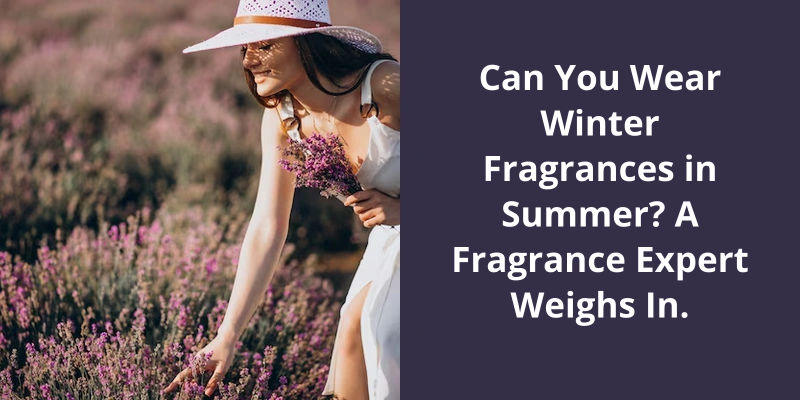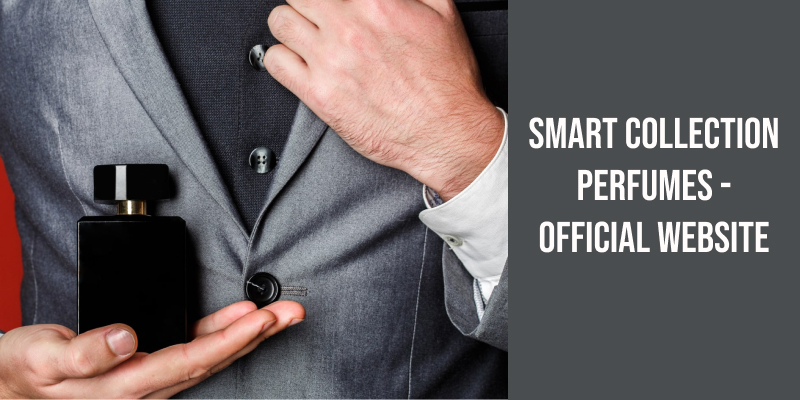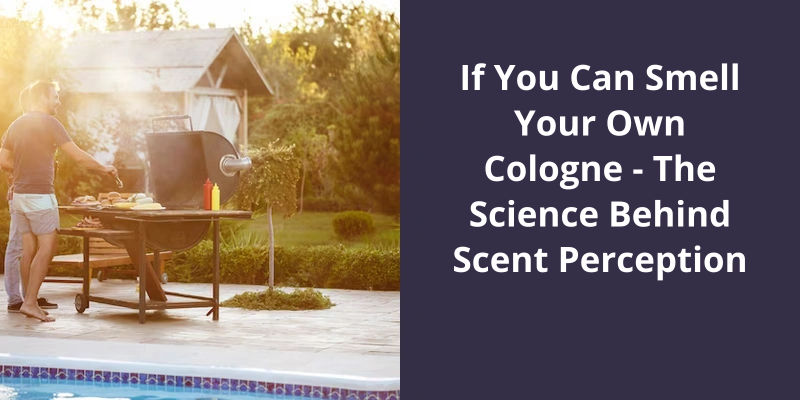Yes, you can wear winter fragrances in summer. However, it’s important to remember that different scents react to varying temperatures and can produce different effects. Winter fragrances, often defined by heavier, warmer, and spicier notes, may seem more intense in the heat of summer. This intensity can be overpowering for some people. However, the choice of fragrance is a personal matter and can also depend on your mood, the occasion, and your skin chemistry. Therefore, while it is perfectly acceptable to wear your winter perfume in the summer, it might be worth considering a lighter fragrance for hot weather if you find that the more intense winter scent is too strong.

What Is the Difference Between Winter and Summer Fragrance?
In the world of fragrances, the difference between winter and summer is stark. While winter colognes are known to be heavy and opulent, summer fragrances are light and refreshing. The idea behind this is that the fragrance should complement the season and the mood that comes with it. This isn’t just a marketing gimmick.
They’re made with ingredients that add weight and depth, such as patchouli, sandalwood, vanilla, and musk. These ingredients create a warm and comforting scent that complements the colder, darker months of the year. Winter fragrances are often spicy, with hints of cinnamon, clove, and nutmeg. They’re also characterized by notes of leather, amber, and tobacco. These fragrances project confidence and authority and are perfect for making a statement.
Summer fragrances, on the other hand, are light and airy. They’re designed to keep you feeling fresh and cool on hot summer days. They feature notes such as citrus, bergamot, lemon, and grapefruit. These fragrances are often paired with synthetic marine notes, which are intended to mimic the scent of the ocean. The result is a refreshing and invigorating fragrance that’s perfect for outdoor activities.
Both are designed to complement the mood and season of the year. A good fragrance choice can help to create a lasting impression and add a touch of sophistication to any outfit.
How to Choose the Perfect Winter or Summer Fragrance
When choosing a winter or summer fragrance, there are a few things to consider. For winter, opt for scents that are warm and cozy, such as vanilla or amber. For summer, choose lighter, fresher scents like citrus or floral. It’s also important to consider how the fragrance will interact with your body chemistry, so be sure to try a small sample before purchasing a full bottle.
As we delve deeper into the world of fragrances, we start to realize that each season has it’s own unique characteristics that can vastly affect the way a scent smells on our skin. While some prefer light and fresh scents for the warmer months, others may opt for something more bold and dramatic during the cooler seasons. In this article, we’ll explore why winter is considered the best season for perfume and how you can make the most of your fragrance collection during this time of year.
Which Season Is Best for Perfume?
These perfumes can usually last for hours and be noticeable without being too overwhelming. Winter is also a time when people tend to stay indoors more often, which means that the scent of perfume has a chance to linger longer and be appreciated by others.
Another reason why winter is the best season for perfume is because of the holiday season. During this time, there are usually more social events and gatherings where people want to look and smell their best. Many people opt for a special holiday scent or choose to wear a stronger perfume to make a statement.
Spring is also a popular season for perfumes, as the warmer temperatures and longer days can make people feel more invigorated and energized. The lightness and freshness of spring fragrances complement the new growth and blooming flowers of the season. Floral and citrus scents are particularly popular during spring, as they evoke feelings of happiness and renewal.
Summer is often associated with lighter, more refreshing fragrances that can be worn for outdoor events and activities. Beachy scents like coconut and sea salt are popular during this season, as they can be reminiscent of a tropical vacation. However, the higher temperatures and humidity can make fragrances evaporate more quickly, which can affect their longevity.
Fall is another season where heavier, spicier fragrances are popular. The crisp air and changing leaves can inspire scents of cinnamon, clove, and vanilla. Many people also like to wear fragrances that evoke the feeling of a cozy sweater or a warm fireplace. The cooler temperatures can also help the fragrance last longer on the skin.
While winter may be the ideal time for heavy fragrances, there are plenty of people who prefer lighter scents all year round. Ultimately, the most important thing is to choose a scent that makes you feel confident and happy.
How to Choose the Perfect Perfume for Your Personality and Style.
- Identify your personality and style – Are you outgoing, reserved, playful or sophisticated? Do you prefer floral, fruity, musky or woody scents?
- Choose the right concentration – Perfumes are available in different concentrations such as eau de parfum, eau de toilette and cologne. Choose the concentration that gives you the desired longevity and intensity.
- Consider the occasion – Choose a perfume that suits the occasion. Light and fresh scents are perfect for daytime wear while intense and spicy scents are great for evening wear.
- Test the perfume – Before buying the perfume, test it on your skin to see how it reacts with your body chemistry. Perfumes smell different on different people.
- Take your time – Don’t rush into buying a perfume. Take your time to explore different scents and find the one that matches your personality and style.
Source: A FRAGRANCE FOR EACH SEASON? – NINU PERFUME
It’s important to consider the seasonal impact on fragrances as certain scents can be overpowering and overwhelming during summer months. While a signature scent may be perfect for colder weather, it may not translate well in the heat of summer. Factors like humidity and sun exposure can also affect the way a fragrance smells on the skin.
Why Are Some Perfumes Not Good for Summer?
When it comes to perfume, there are certain fragrances that work better in the summer than others. This is because hot weather can intensify the fragrance notes and make them seem overwhelming. When molecules heat up, they evaporate more quickly, and this means that certain scents can be overpowering during the summer months.
In addition, some perfumes may contain ingredients that can be irritating to the skin in hot weather. This is particularly true for fragrances that contain alcohol, which can dry out the skin and lead to irritation. Certain notes, such as citrus and spice, can also be problematic in the summer as they can be more likely to cause skin reactions in the sun.
When youre spending time outside in the sun, your body temperature rises, and this can cause your perfume to become more intense. This can make it difficult for other people to be around you, especially in closed spaces like elevators or cars.
Finally, it’s worth noting that certain types of perfumes, such as eau de parfum or extrait de parfum, can be too heavy for the summer. These fragrances are designed to be long-lasting and intense, which can be overwhelming in hot weather. Instead, it’s a good idea to opt for lighter fragrances like eau de toilette or cologne, which are more subtle and refreshing in the heat.
Tips for Finding the Perfect Summer Perfume
Summer is the perfect season to switch to a new fragrance. Here are some tips to help you find the perfect summer perfume: consider the notes, longevity, and skin type compatibility. Look for fragrances with fresh and light notes like citrus, floral, and fruity scents for summer. Make sure it lasts long enough to avoid the need for constant reapplication. Lastly, test the fragrance on your skin to see how it reacts with your body chemistry before purchasing.
As the temperatures drop and the snow begins to fall, many of us turn to warm and cozy scents to compliment the season. These scents are often categorized as “winter fragrances,” with a distinct combination of warm and spicy notes that evoke feelings of comfort and coziness. From the rich aroma of amber, musk, and tobacco to the spicy notes of cinnamon and clove buds, there’s something about these fragrances that just feels perfect for winter. But what exactly makes a perfume a winter scent? Let’s explore.
What Makes a Perfume a Winter Scent?
Winter is the season of chilly winds and cold weather, which calls for a shift in the fragrances one wears. This shift isn’t just in the intensity of the aroma but also in the notes used to create a fragrance. A perfume that’s perfect for summers may not work well in winters. In the winter season, perfumes that bring warmth and comfort to the senses are preferred. These fragrances often have a rich and opulent quality that uplifts the mood on dreary winter days.
To make a perfume fit the bill of being a winter scent, perfumers use specific notes that evoke warmth and coziness. One of the key notes is amber, which exudes a rich and warm aroma, often with spicy and sweet accents. It’s known for it’s sensual and intimate fragrance that works well in cool weather, making it an ideal note for winter fragrances. Musk is also a popular note used in winter perfumes. It’s a subtle yet captivating scent and is often used in complement with other notes.
Another group of notes that work well for winter scents is the spicy notes. A combination of sweet and pungent fragrances that lend a warm and soulful feel to the perfume. Spicy notes like clove buds, star anise, and cinnamon add spiciness and a sense of liveliness to the fragrance. These notes are known to lift one’s mood, making it an excellent choice for winter fragrances.
In addition to these notes, perfumers often use rich and deep notes like tobacco in winter fragrances. This note adds depth, sophistication, and a calm feel to the fragrance.
Popular Winter Fragrances for Men and Women
- Tom Ford Fabulous
- Chanel Coco Noir
- Jo Malone Myrrh & Tonka Cologne Intense
- Dior Fahrenheit
- Creed Aventus
- Yves Saint Laurent Black Opium
- Bleu de Chanel
- Thierry Mugler Alien
- Tom Ford Tobacco Vanille
- Viktor & Rolf Spicebomb
- Yves Saint Laurent La Nuit de l’Homme
- Jo Malone Wood Sage & Sea Salt
In addition to storing your fragrances in cooler temperatures, there are actually several other factors that can impact the lifespan of your perfume. From exposure to light and air, to the type of scent and ingredients used, there are several things to consider when it comes to making your fragrance last as long as possible. So, if you’re wondering whether your perfume can survive the heat of summer, read on to discover some tips and tricks for keeping your scent fresh and long-lasting, no matter the weather.
Does Perfume Go Bad in Hot Weather?
Perfumes are a coveted commodity for their pleasant aroma that embellish the overall personality of an individual. However, many question the durability of their favorite scents when stored in hot weather. The answer to this dilemma isn’t straightforward and needs thorough consideration of the variables. The summer season is an excellent time to enjoy the outdoors, but it’s not ideal for storing perfume due to it’s hot and humid weather conditions.
The ideal temperature to store perfumes is between 50 and 60 degrees Fahrenheit. High temperatures, especially above 80 degrees, can cause the aroma to break down, rendering the perfume ineffective or unpleasant. When exposed to heat, the ingredients in the scent can evaporate faster, causing changes to the overall aroma, texture, and even color. Furthermore, the light and heat can also darken the fragrance bottle, making it less attractive.
Humidity has a significant impact on the effectiveness of perfumes. Moisture attracts and alters the scent molecules, causing them to bend and break at a faster pace. This change in the molecular structure can make the scent smell different than intended. High humidity can also cause mold and bacterial growth in the bottle, making it unfit for use. Therefore, it’s crucial to store your perfumes in an atmosphere that maintains a low moisture level.
Perfumes can also go stale due to exposure to air. Oxygen reacts with the perfumes components, causing an alteration in their chemical structure, ultimately leading to a change in fragrance. Hot weather can accelerate the oxidation process, which means the aroma may expire faster than expected. This change in scent can be subtle, and some fragrances may still smell good even after they’ve expired. However, it’s better to avoid using them in this condition.
Many fragrances come in delicate, exquisite glass bottles that are susceptible to breakage. Keeping perfume bottles in a warm environment can cause the glass to expand and contract, leading to cracks or breakage. It’s always advisable to avoid placing perfumes in exposed areas, such as windows or shelves, that are directly in sunlight. You may want to invest in a dark, airtight container to store your favorite fragrances, especially during summers.
Tips for Storing Perfume Properly
Storing perfume properly involves keeping it away from light, heat, and air exposure. The best way to do this is by storing it in a cool, dry, and dark place, such as a dresser drawer or a closed cabinet. It’s also important to keep the perfume bottle tightly closed when not in use to prevent evaporation and preserve it’s fragrance.
So if you’ve ever wondered why your perfume seems to last longer during the colder months, it’s not just in your head. There’s actually science behind it!
Why Does Perfume Last Longer in Winter?
Perfume is an olfactory experience that can uplift the mood, evoke memories and create a lasting impression. The aromatic molecules present in the perfume are responsible for the scent profile that captivates the senses. However, the longevity of the perfume is influenced by several factors, including the weather.
Winter weather has a lower temperature, which affects the rate at which perfume evaporates. When the temperature drops, the aromatic molecules of the perfume take longer to evaporate into the air, leading to a slower diffusion. As a result, the perfume lasts longer in the winter months compared to summer or spring.
When the air is dry, the perfume molecules tend to stick to the skin for more extended periods, leading to a longer-lasting fragrance.
Fragrances with a higher concentration of essential oils tend to last longer than the lighter ones. In the winter, people tend to use more concentrated perfumes to keep themselves warm, leading to a long-lasting fragrance.
People with dry skin tend to have a more extended fragrance lifespan compared to those with oily skin.
How Humidity Affects Perfume Longevity
Humidity can have an impact on the longevity of perfumes as it can interact with the scent molecules and affect their evaporation rate. In high humidity, the air is already saturated with water molecules, which means it can make it harder for the fragrance to evaporate into the air and be detected. This can cause the perfume to feel heavier on the skin and may make it last much shorter than it would in a drier climate. Conversely, dry air has a lower water content which allows perfume molecules to evaporate easily, making it last longer.
Conclusion
While some may argue that certain scents are more appropriate for certain seasons, there are no hard and fast rules when it comes to fragrance. It's important to choose a scent that makes you feel confident and comfortable, regardless of it’s typical seasonal association. Experimenting with different fragrances can be a fun way to discover new scents and express your individuality. Ultimately, the most important factor is to wear what you love and what makes you feel good, regardless of the season.





